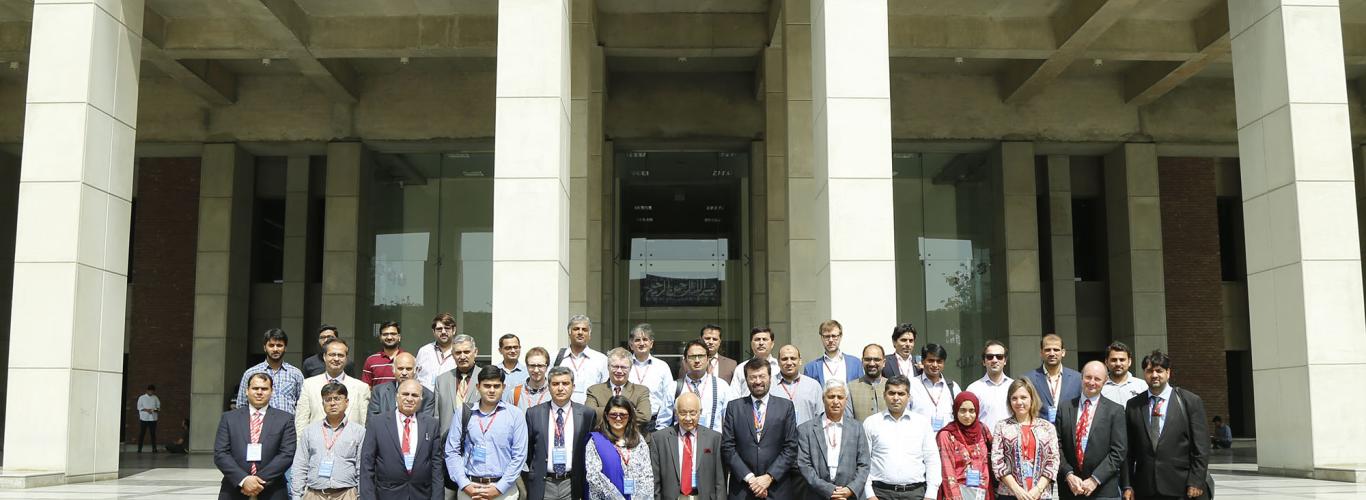WIT and IIASA launch Project on Water-Energy-Land Nexus Challenges
The Centre for Water Informatics and Technology at LUMS and the International Institute for Applied Systems Analysis (IIASA) based in Austria co-hosted a workshop on “Identifying Water, Energy, and Land Nexus Challenges in the Indus Basin” on March 26, 2018. The workshop was organised in order to exchange experience and seek stakeholder guidance on identifying priority issues related to cross-sectoral and transboundary cooperation in the areas of water, energy, and land in the Indus basin. This workshop was part of a larger stakeholder engagement process that is being undertaken within the “Integrated Solutions for Water, Energy, and Land (ISWEL) project”, led by IIASA in partnership with the Global Environment Facility (GEF) and the United Nations Industrial Development Organization (UNIDO).
Dr. Simon Langan from International Institute for Applied Systems Analysis (IIASA) started the proceedings with the introduction of Integrated Solutions for Water, Energy, and Land (ISWEL) project. He talked about the main goal of ISWEL project which is to assess cost-effective solutions to meet future water, energy and lands demands under a number of different socioeconomic and hydro-climatic pathways. While ISWEL takes a global approach, it also zooms into two transboundary basins facing important development and environmental challenges: Indus and the Zambezi. A panel discussion addressing challenges of the WEL Nexus in the Indus River Basin took place In the first half and in the second half of the day another panel discussion on Indus Futures: challenges, trade-offs, and synergies on its pathways to desired futures. High-level officials from Government, Industries and Private sectors participated in the event.
ThIis was an important and timely meeting because it provided an opportunity to discuss the current status and future outlook in the Indus basin from the Pakistan perspective, prioritize water-energy-land nexus challenges and corresponding research priorities. This workshop also created a space for networking and initiating cooperation with other researchers, professionals, and practitioners working on this topic.
A number of iterative workshops in coming years are envisaged by WIT in order to develop this partnership with IIASA further. In developing basin scenarios, reviewing ‘solution options’ and enhancing technical capacity relating to integrated assessment modelling in the sphere of water, energy and land nexus.





